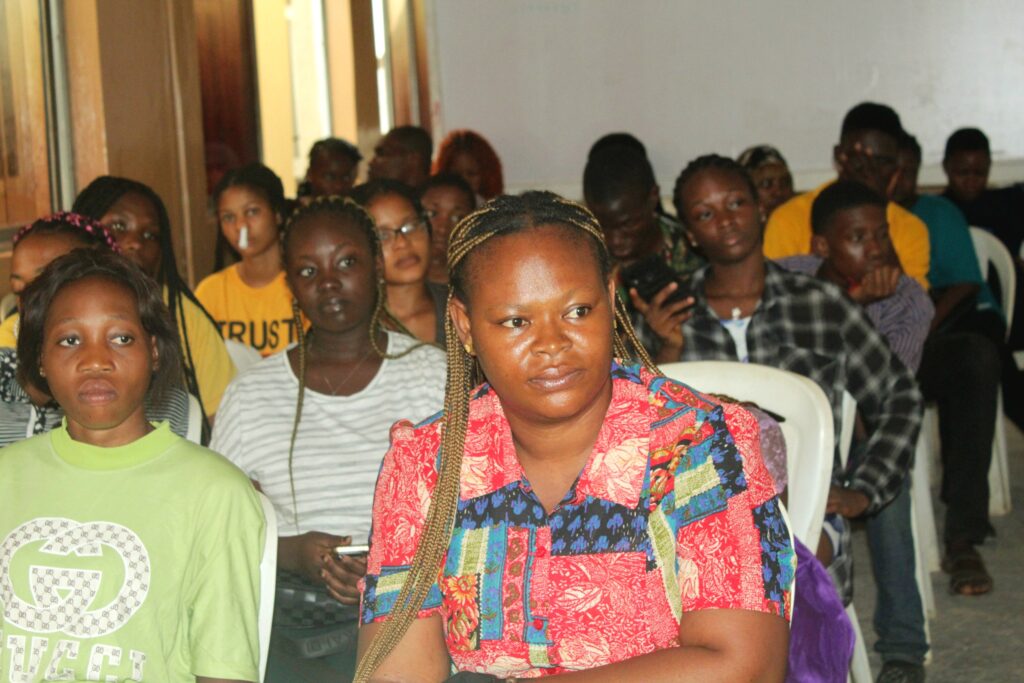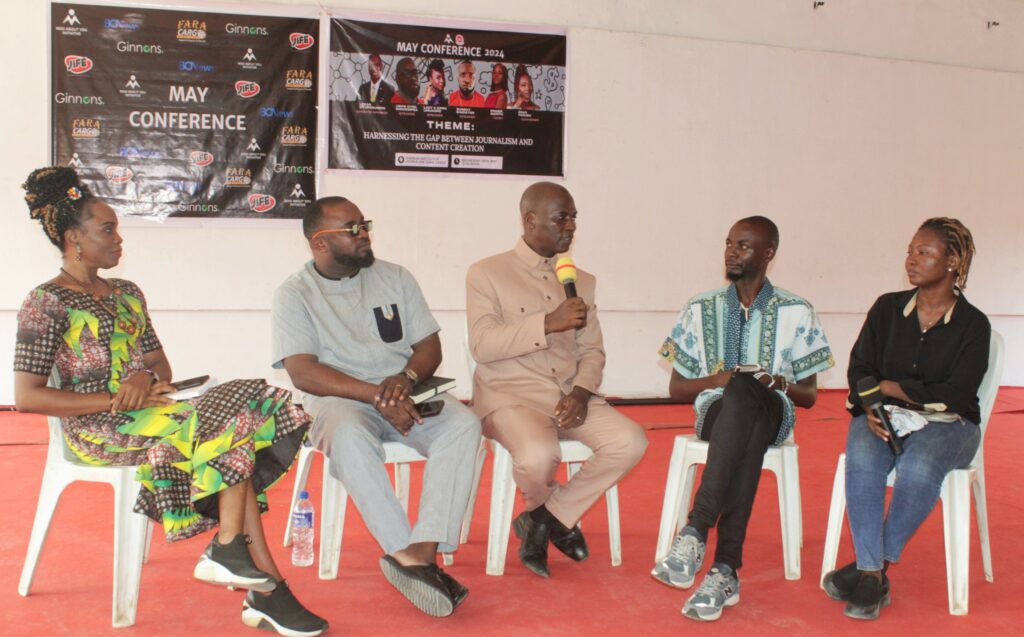Otufodunrin, Lady Ejiro, Omozokpea, Ehighator Ignite Passion for Digital Innovation in NIJ Students
Media Experts Spark Digital Dreams in students of the Nigeria Institute of Journalism, inspiring a new generation of changemakers.
By Oluwaseyi Elizabeth Jimoh
In a rapidly changing media landscape, content creation has become king, but it’s disheartening to see contemporary journalists, who are supposed to be gatekeepers in the media industry, struggling to satisfy their teeming public with the desired information. To address this issue and improve the competence of students in journalism, Joan Ifeoluwa Yakubu, a young female alumnus of the Nigeria Institute of Journalism and director of Mad About You (MAY), convened various media experts to speak on “Harnessing the gap between Journalism and Content Creation.”
The forum, which took place at the school hall on May 29th, a significant political transition day for Nigerians, saw in attendance media experts from the industry as facilitators. The keynote speaker, Mr. Lekan Otufodunrin, Executive Director of Media Career Network, spoke on the theme of the workshop, emphasizing that there is a gap between content creation and journalism that needs to be bridged before it’s too late for professional journalists and media organizations. He highlighted how some media organizations are trying to catch up with creating engaging content in a landscape where non-journalists have taken over the role of information dissemination.

Otufodunrin encouraged prospective journalists to become digitally compliant, learn new skills, and embrace content creation by turning lengthy reports into short, engaging ones that resonate with the target audience. “People want information that they can use, and you must find engaging ways of getting your audience,” he said. He also cautioned content creators to shun disinformation, plagiarism, and content theft, and instead embrace accuracy, fairness, and truth while providing content on the media space.
The second speaker, Lady Ejiro Umukoro, a Distinguished Changemaker Awardee of the United Nations Agency for Global Media and author of the book, DISTORTION, recently endorsed as the literature of study by the Ministry of Education by the Delta State Government began her session with an interactive and enlightening approach on how students can leverage digital platforms for personal brand positioning. She emphasized that journalists are think tanks, creators, generators, visualizers, dreamers, visionaries, and predictors who use their brainpower to bring ideas together to provoke meaningful conversations that provide solutions. “Self-awareness is the key to personal branding,” she said, encouraging participants to define themselves in three words.
Lady Ejiro vividly recalled how she purposefully used her various social media platforms to showcase her brand while building her profile, which resonates with the three words that define her as #BoDaCious #ViVaCious #VaVaVoom, stimulating worthwhile online presence. “Don’t forget to use hashtags on social media platforms as it provides you with the needed visibility on SEOs. While on social media, be intentional about the personality you follow. Let them be persons who resonate with your creativity, aspirations, and goals. Always remember that your profile is your portfolio,” she asserted.

The next speaker, Mr. Usifo Cyril Omozokpea, Audience Development Manager at The Conversation Africa and a former BBC manager, producer, and trainer, oriented the students on how to thrive and monetize content creation in the digital market. Omozokpea analyzed how the audience reacts to various content. “People like to see themselves in the content you provide. Be conscious about the channel your content is on and determine who your audience is by asking: who is my key target? Who is this story for? Who is going to read? When they do, how will they feel afterward? These answers and more will help provide a sense of direction to who your key target is.”
Omozokpea emphasized the need for journalists to discover who they are and what they like. “Not everyone will have to have a byline or get behind the cameras. Others may thrive in the media space by being skit makers because everyone is stressed out and needs content to wash away the stress. You need to realize the right channel and platforms that will work after understanding where your target is, either on the podcast or the bottomless YouTube.” He explained the importance of embracing freelance and entrepreneurship while combining journalistic ethics when creating content. “Content will bring the numbers as you do less work when you give value. The best way to work is to start and keep going.”
The final speaker, Mr. Sunday Ehighator, a seasoned crime and investigative reporter, took the students on the importance of prioritizing compelling content that meets journalistic standards. He encouraged content creators to uphold ethical standards of truth and accuracy, which comes with investigation and verification through fact-checking. “When presenting content, leave the public to decide while being objective.” The speaker narrated how his content, which has a feature of satire, was used to call out a school management to correct a pressing issue while he was on the UNIBEN campus in Benin, Edo State during his undergraduate days. He emphasized the importance of upholding transparency and confidentiality of sources.

The forum ended with a panelist session that allowed the students to ask related questions while gaining clarification on the implications of how content creation affects public perception and the importance of knowing the laws of the land regarding media practice and content creation. Students were advised never to make monetization of contents a singular focus but should also while prioritise embracing social responsibility and creating impact, which in the long run attracts money or returns on investment.





Comments